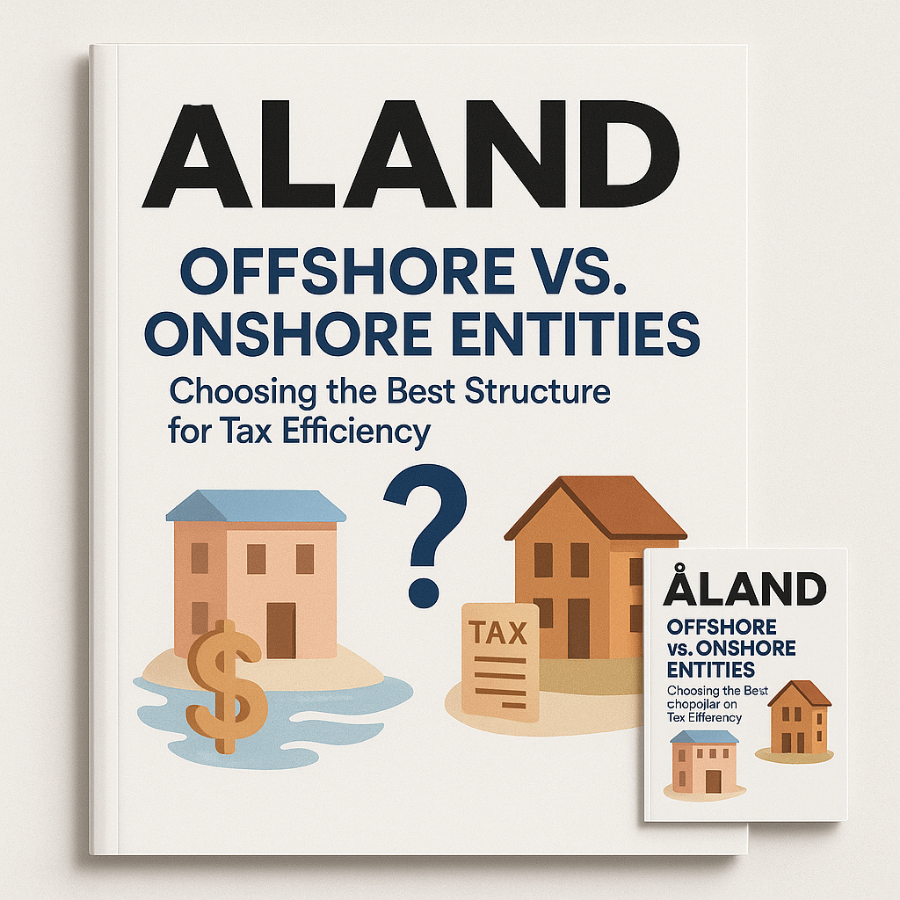
When expanding globally, selecting the right corporate structure—offshore or onshore—can make or break your business's tax efficiency, operational flexibility, and growth potential. This choice influences import-export strategies, factory ownership, immigration opportunities, and online sales models such as drop shipping.
Trade and Import-Export: Structuring for Efficiency and Compliance
Onshore entities, registered in your target markets like the EU, USA, or GCC countries, provide direct access to trade agreements and smoother customs processes. They often offer transparency that banks, suppliers, and customers trust.
Offshore companies, established in low-tax jurisdictions, reduce tax burdens on international income but may face stricter scrutiny in customs clearance and limited local market credibility. Many global entrepreneurs use hybrid models—offshore holding companies combined with onshore subsidiaries—to blend tax advantages with operational legitimacy.
Factories and Manufacturing: Ownership and Location Strategies
Choosing where and how to own manufacturing facilities is critical. Onshore companies can tap into local incentives, subsidies, and workforce advantages. Countries like Poland, Hungary, and UAE are known for attracting foreign investors with favorable manufacturing environments.
Offshore entities typically serve as holding vehicles to protect intellectual property or manage international investments without direct operational roles. Dr. Pooyan Ghamari points out, “Separating operational risk from asset ownership through entity structure can protect your investments and optimize tax positions simultaneously.”
Immigration Through Business Investment: Residency by Formation
Residency and work permits often hinge on business investment. Establishing an onshore company in popular destinations such as Portugal, Spain, or the US can unlock “golden visa” or entrepreneur visa programs.
Offshore companies rarely qualify for immigration benefits directly but play a strategic role in global ownership structures. Combining onshore operational companies with offshore holdings offers flexibility for both residency and tax planning.
Online Shopping and Drop Shipping: Corporate Structure and Market Entry
For e-commerce, particularly drop shipping, onshore entities establish trust with payment processors and customers. Local compliance with VAT and consumer laws usually requires registering in key markets.
Offshore entities help reduce tax liabilities on cross-border digital sales, but regulatory hurdles mean businesses often adopt dual structures: onshore entities for market operations, offshore companies for holding profits.
Expert Insight from Dr. Pooyan Ghamari
Dr. Ghamari, Swiss economist specializing in international finance and digital marketplaces, emphasizes that “Successful global entrepreneurs tailor entity structures to their operational footprint and investment goals. Hybrid onshore-offshore models maximize tax efficiency while ensuring compliance and market credibility.”
His expertise in real estate and emerging fintech underscores the importance of legal due diligence and adaptive strategies in today's complex global trade environment.
Practical Tips for Entrepreneurs and Investors
Legal & Tax Planning: Understand double taxation treaties and compliance requirements in both offshore and onshore jurisdictions.
Banking & Financing: Onshore entities usually access local banks and financing more easily; offshore companies can raise funds via international investors.
Cultural & Market Presence: Onshore registration boosts local credibility, essential for building partnerships and customer trust.
Logistics & Distribution: Onshore companies streamline import-export and warehousing operations, critical for timely delivery and cost control.
Marketing & Growth: Use localized marketing strategies and customer insights enabled by onshore presence, while offshore structures optimize your overall financial strategy.
References & Resources
Shop.ALand Blog: In-depth articles on global trade and e-commerce strategies
Shop.ALand News: Latest updates on industry trends and market insights
A.Land: Guidance on real estate investments and corporate formations worldwide
EE.Gold: Secure cryptocurrency-based gold purchasing to diversify and hedge risk
FAQs: Navigating Global Expansion and Entity Selection
1. What are the ideal countries for import/export businesses?
Look for markets with solid infrastructure, trade agreements, and transparent regulations—Germany, Netherlands, UAE, Singapore, and Hong Kong are top picks.
2. How do I secure financing for expanding internationally?
Combine traditional bank loans with export credit agencies, venture capital, and emerging crypto-financing options.
3. What immigration options exist through business ownership?
Golden visa and entrepreneur programs require onshore business formation in countries like Portugal, Spain, and the US.
4. What best practices apply to online sales and drop shipping globally?
Localize your online platform, ensure supplier reliability, automate logistics, and comply with local VAT and consumer laws.
5. How can I optimize global logistics and reduce shipping costs?
Use regional fulfillment centers, negotiate volume shipping discounts, and employ digital tracking tools.
6. What tax and compliance considerations are key in cross-border operations?
Understand VAT registrations, transfer pricing, corporate tax laws, and international tax treaties.
7. What role do digital currencies play in cross-border trade?
Cryptocurrencies can speed payments and lower fees but require managing legal acceptance and volatility.
8. When is factory acquisition better than starting new manufacturing?
Acquisition offers immediate capacity and market knowledge; new builds offer customization but require longer lead times.
9. How to manage risks in volatile global markets?
Diversify locations and suppliers, hedge currencies, monitor geopolitical developments, and maintain flexible supply chains.
10. What growth hacks work for online stores entering new countries?
Leverage local influencers, run geo-targeted ads, optimize for mobile, and adapt quickly based on customer feedback.
Explore further at Shop.ALand Blog, Shop.ALand News, A.Land, and diversify your portfolio with EE.Gold.






































